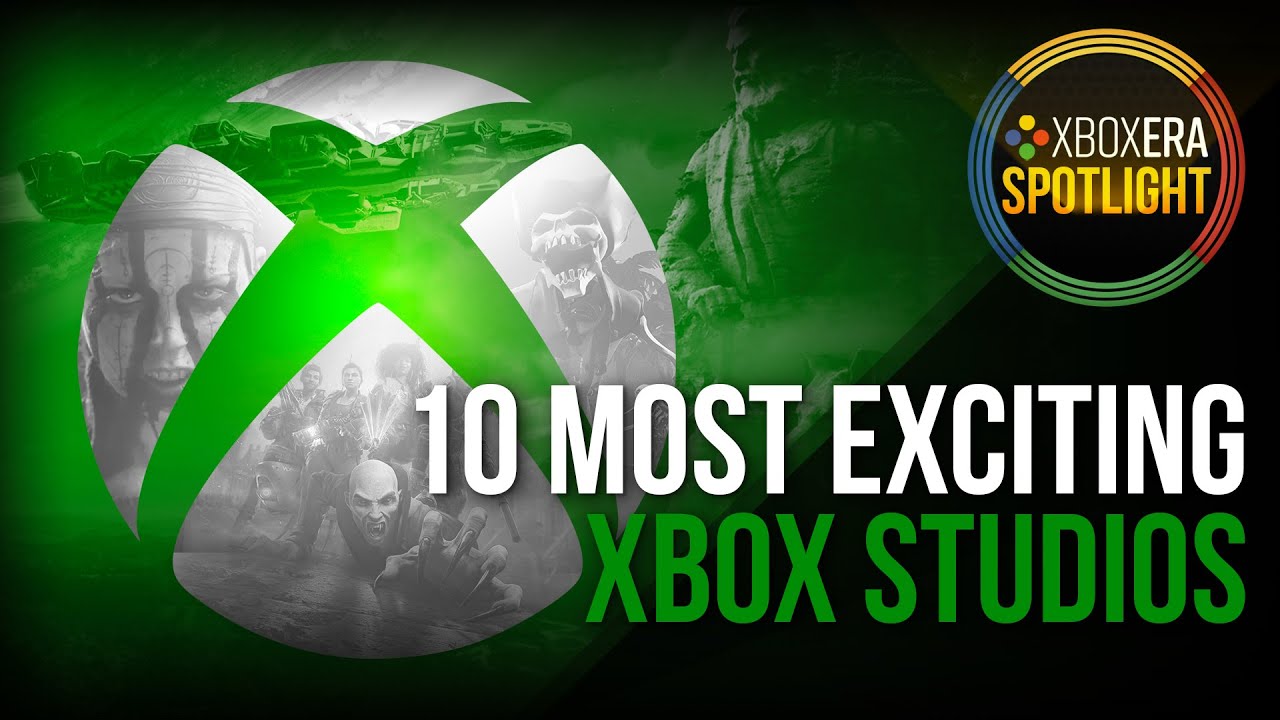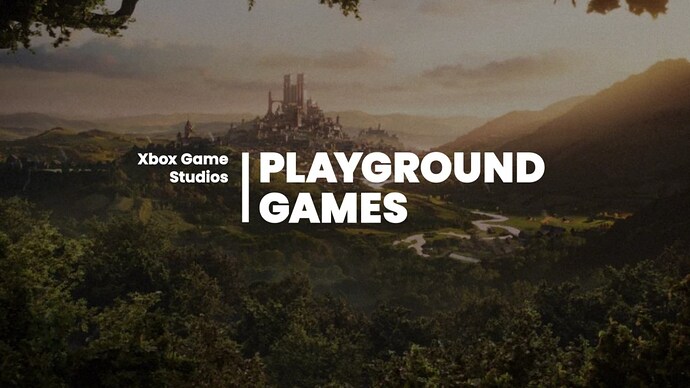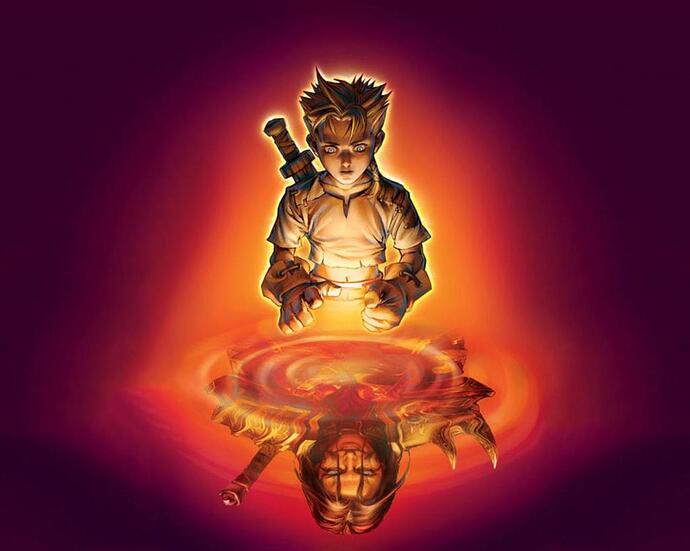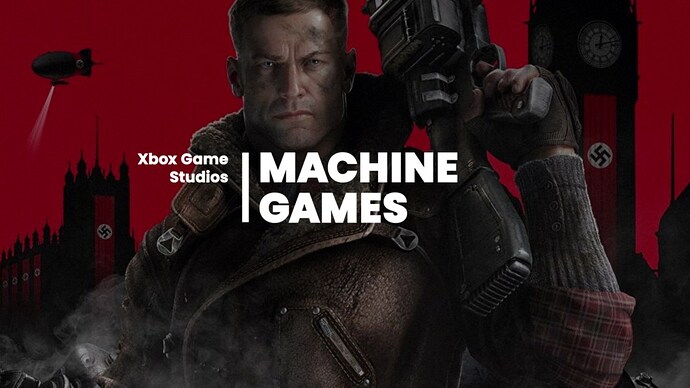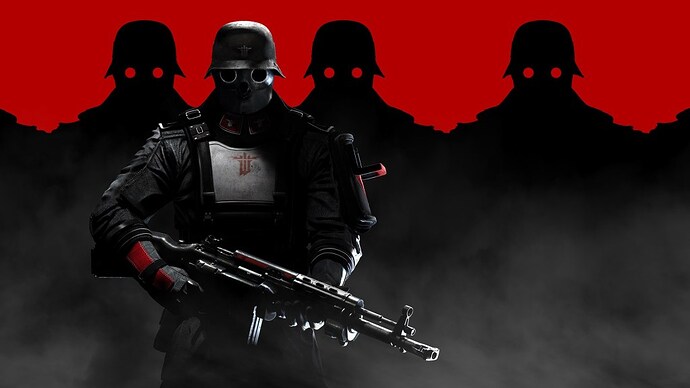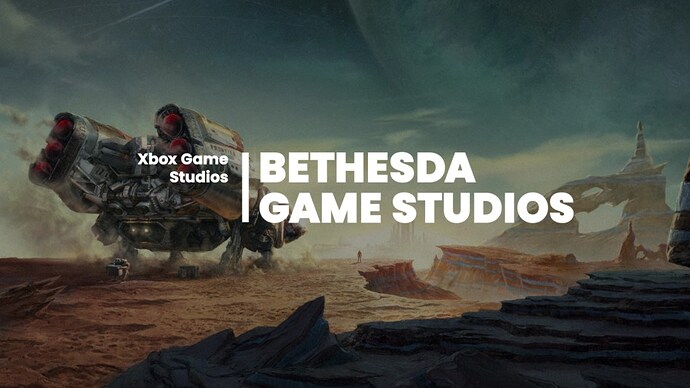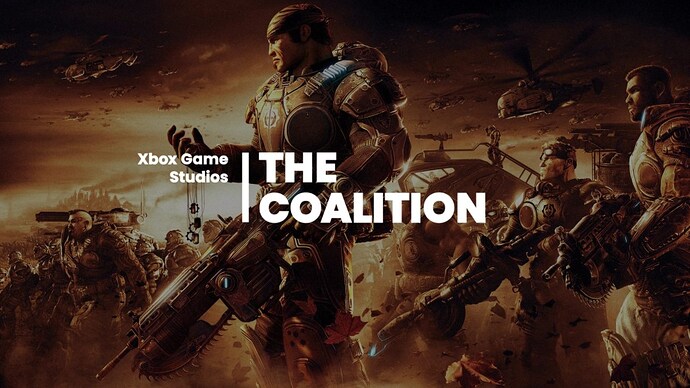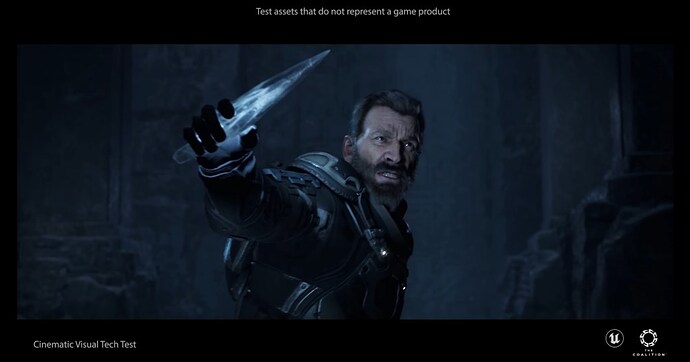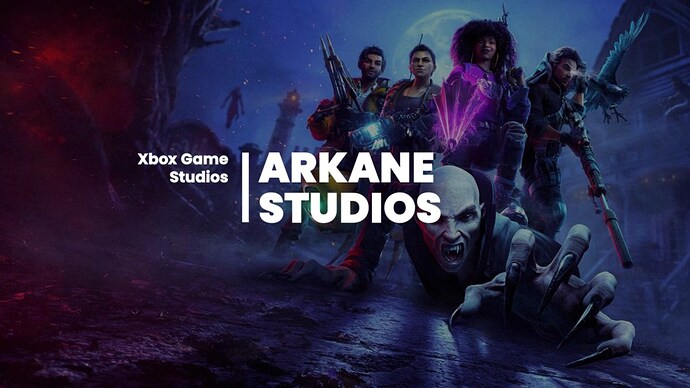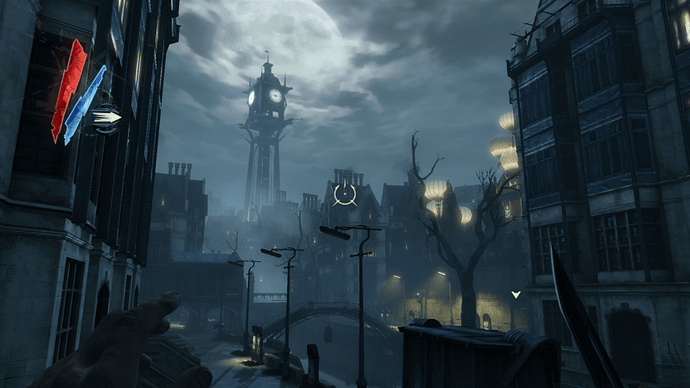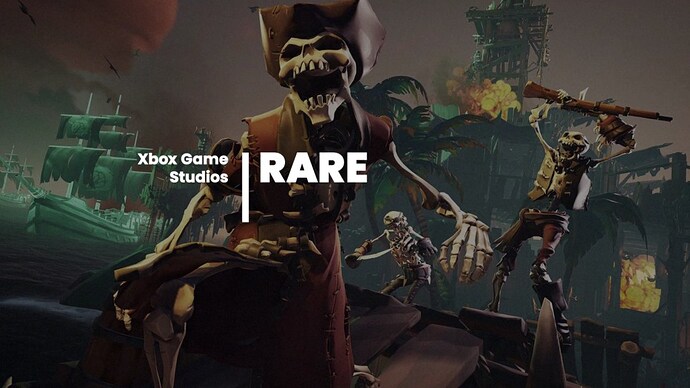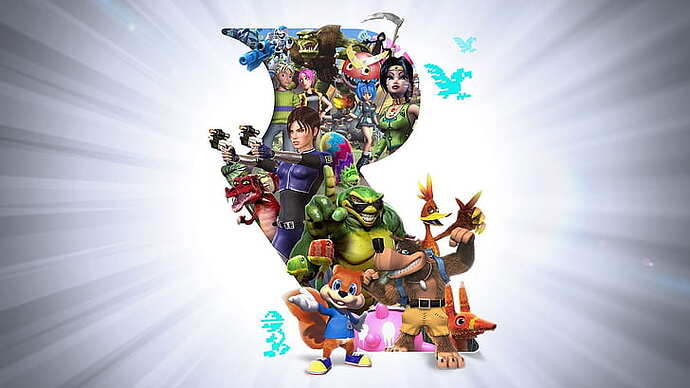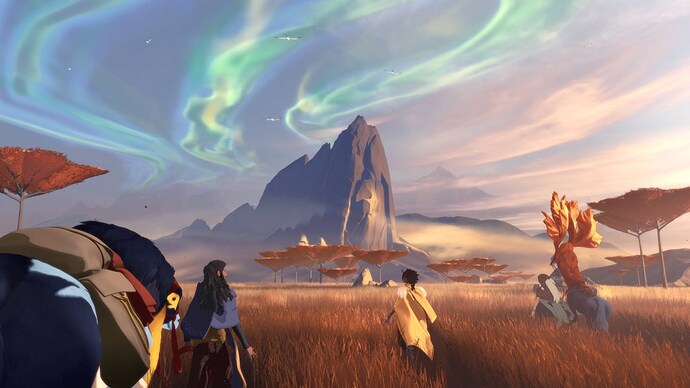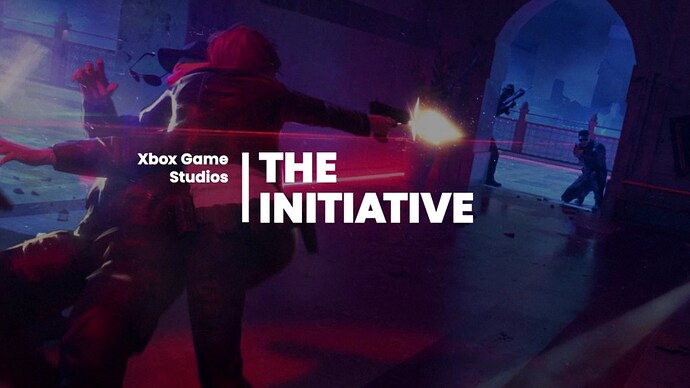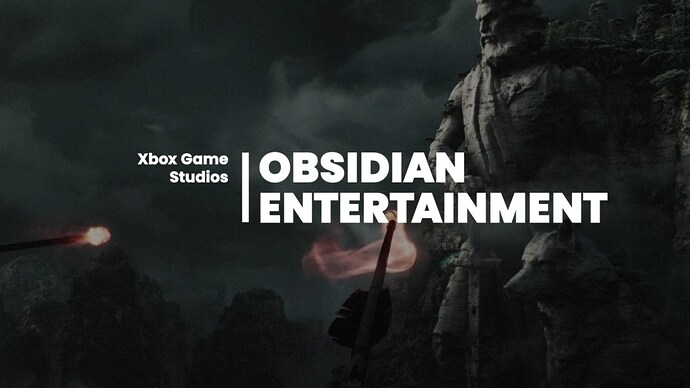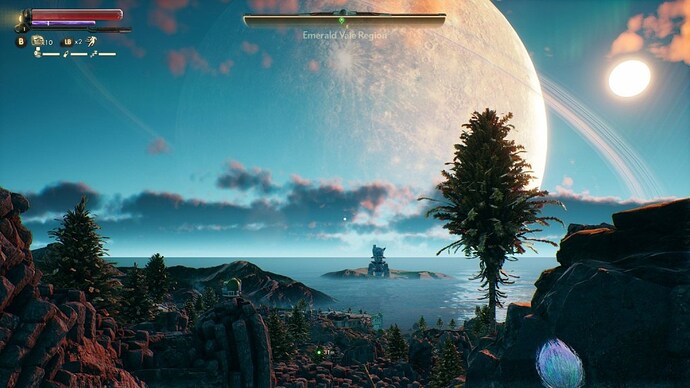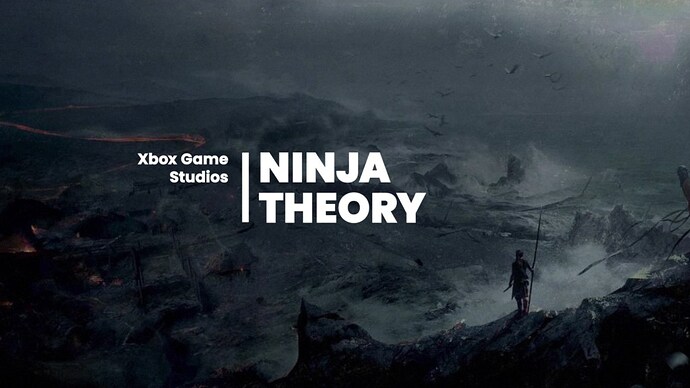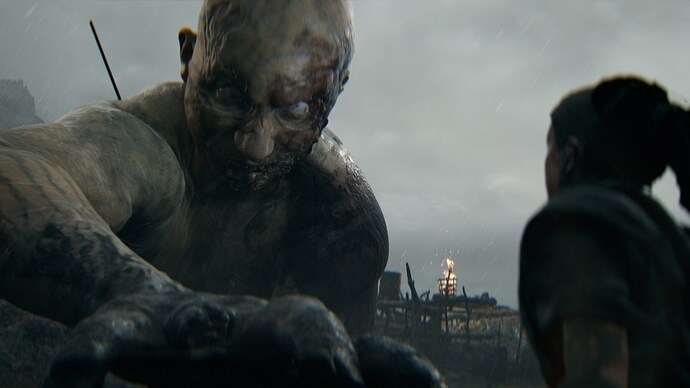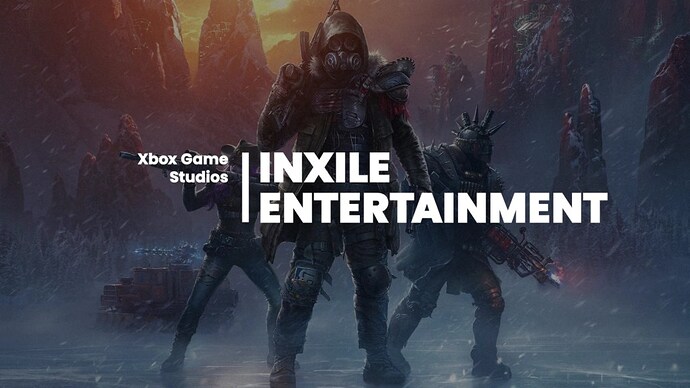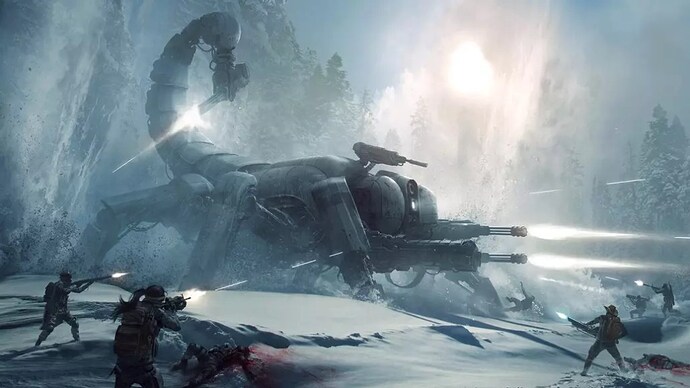Originally published at: Top 10 most exciting Xbox Game Studios
Xbox has quickly grown their internal studio organization from 6 in 2017 to 23 in 2023. The growth here is astronomical and aligns with Microsoft’s clear refocus on gaming and their goals to make it a pillar of the company. The studio base could grow pending on how the Activision-Blizzard deal shakes out, but for now Xbox has a very strong and diverse collection of first-party developers.
The team at XboxEra is very excited about the future of these studios and wanted to share this excitement. We narrowed them down from 23 to 10 by collecting votes from the staff but to be clear, these are not necessarily the 10 studios we think are the best, but rather which studios we’re most excited to see more from under the Xbox umbrella. Also keep in mind that the following list is in no particular order.
Without further ado, let’s dive in.
Starting off the list is a studio everyone here should be familiar with. Playground Games is UK based and began their journey in 2012 with the very first Forza Horizon game. The studio was founded by industry veterans Ralph Fulton, Gavin Raeburn and Trevor Williams, all who worked together at Codemasters, the renowned racing studio famous for Grid, F1, and the Dirt franchises. Playground worked closely with Microsoft on the Horizon series for a number of years before they were acquired in 2018. This series propelled them into the limelight and their latest game, Forza Horizon 5, is regarded as one of the best racing games ever made.
Playground is known for their painstaking attention to detail, eye popping graphical fidelity, and open world prowess. The team at XboxEra is incredibly excited to see this same studio attempt to transfer their mastery to another open world series as they tackle their upcoming Fable reboot.
Fable means a lot to the Xbox brand. The original trilogy provided an incredibly unique fantasy role playing series to the platform during the 2000s. The series is very British, which makes sense considering the original developers, Lionhead Studios, were located just outside of London during their near 20-year run. The humor, mannerisms, and overall style found in Fable is not often seen anywhere else among RPGs, so it is incredibly important that any newcomers tackling the franchise understand this.
Luckily, Playground Games is in theory up to the task as they reside in Leamington Spa, England. Any additional concerns that the humor may be lost on a new studio should have been squashed after the announcement trailer, which seemed to understand the whimsical nature of the Fable franchise.
Based on what we’ve seen Playground Games do for many years on the Forza Horizon series, alongside their theoretical understanding of the charm of Fable, we have high hopes that the studio will be able to knock it out of the park, and we can’t wait to see our first true look at the game when the team is finally ready to show it off.
Machine Games was founded in 2009 by several former Starbreeze Studios employees. Starbreeze was best known for The Chronicles of Riddick and The Darkness, meaning the brand-new studio of ex-employees had a built-in reputation for first person excellence. After failing to gain traction with a number of publishers on game pitches, MachineGames agreed to develop a reboot of the Wolfenstein franchise for Bethesda Softworks in July of 2010. That November, MachineGames was acquired by ZeniMax and they would go on to be the new home of Wolfenstein with 2014’s The New Order.
The New Order’s take is a Wolfenstein world in which B.J. Blazkowicz never single handedly stops the Nazi regime and is instead knocked into catatonic state after suffering severe injuries and witnessing the death of his squad mates. He regains consciousness in 1960, and after escaping the asylum he found himself in, he is informed that the Nazis defeated the allies in 1948.
He vows to destroy this new world order and the player sets off on a blistering, frenetic, and explosive campaign that continues forward in the subsequent spin-offs and sequel. MachineGames’ take on Wolfenstein goes to great lengths to capture the same gritty personality of the older titles, with tight and exhilarating FPS gameplay.
In 2021, after a plethora of Wolfenstein titles, a short teaser trailer for a new Indiana Jones game was released by Bethesda. As it came to a close, it was revealed that none other than MachineGames was at the helm. In partnership with Lucasfilm Games, MachineGames is bringing yet another Nazi hating, adventure loving star to an Xbox near you.
While little is known about it at the moment, Todd Howard has gone on record saying that he feels that no one else has the storytelling capabilities that MachineGames does to bring the whip wielder to life in a new medium. We also know that this title, featuring a completely original story, will bring about a wholly unique genre mash-up to its gameplay. We can’t wait to see more and experience what life for Indy was like at the peak of his globetrotting career.
The future for MachineGames is bright and to say that we’re excited for what’s in store is certainly an understatement. With both Indiana Jones and a rumored Wolfenstein 3 on their hands, we can’t wait to see what else this recently acquired Xbox studio can do.
Bethesda Game Studios has a long history of working alongside Xbox on their many Role-Playing Games. The Elder Scrolls III: Morrowind was one of the first major Western RPGs on the Xbox platform and Bethesda worked closely with Microsoft to make sure the game worked on console. That game would remain an Xbox console exclusive and became one of the most recognizable games of the first Xbox generation.
Oblivion launched within the first 5 months of the Xbox 360’s lifespan and while only a timed exclusive was intrinsically tied to Microsoft’s most successful generation. Later in this same generation, The Elder Scrolls V: Skyrim launched on all consoles, but DLC launched first on Xbox. With Fallout 4, Bethesda heavily tied the games marketing to the Xbox One and even launched long requested console mod support first on Xbox.
This decades long partnership between Bethesda Game Studios and Microsoft culminated in Microsoft’s acquisition of Bethesda’s parent company, Zenimax, in 2020, ultimately tying the knot for what had been a near 20-year partnership.
It’s 2023 now, and that means it’s the year for Starfield, the highly anticipated space role playing game that could define the generation for Xbox. It is not a stretch to say that Starfield is the most important new IP for Xbox since Halo: Combat Evolved started it all on November 15th, 2001. While we don’t know how the game will be perceived yet, it has all the makings of a landmark event in gaming that could completely shake the foundations of the industry.
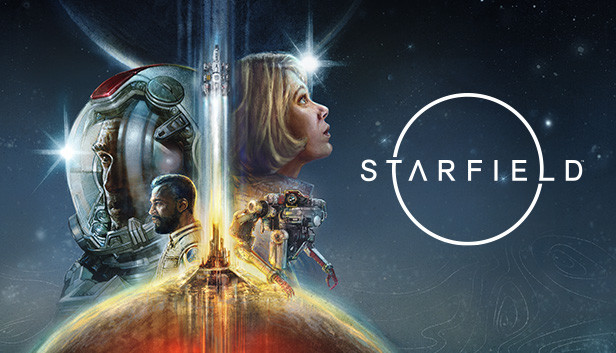
These types of games are what Microsoft have been searching for since the 360 generation, and Bethesda Game Studios is the perfect studio to deliver them for the Xbox platform.
We are extremely excited to see how Xbox and Bethesda Game Studios can benefit each other going forward and what can come of this new partnership. Xbox Head Phil Spencer has already declared that he wants Starfield to be the most played Bethesda Game Studios game ever, even while skipping out on PlayStation consoles, meaning a combination of Microsoft’s reach, Game Pass, and cloud gaming will be required to achieve that goal. BGS head Todd Howard has recently claimed that he feels pressure to deliver for the Xbox platform as he knows Starfield can be a “platform seller”. It is clear both sides understand the importance of holding up their end of the bargain, and that can lead to greatness if all things fall into place. We will ultimately see how things go when Starfield releases this year, and we are optimistic that it will be the beginnings of a truly special partnership that will lead to incredible things for the Xbox platform.
The Coalition is one of Xbox’s most overlooked champions in their arsenal of growing first-party studios, being both incredibly proficient at game development and masters of the Unreal Engine technology. They were tasked with taking on the mantle of responsibility for the Gears franchise after Microsoft acquired the IP from Epic Games back in 2014. Their first job was remastering the original Gears of War that started it all.
Fans rejoiced and applauded The Coalition for this beautiful and faithful remastering of the beloved classic, with extra story content previously only available on the now defunct Games For Windows Live PC version. The following year, fans were revving their Lancers in the first original sequel created from the ground up, Gears of War 4. It was a visual masterpiece much like its predecessors before it, with a new story and familiar faces, it was clear the series was in capable hands.
In 2018 we got our first look at Gears 5, dropping the “of War” from the title now. The game featured rich, detailed environments that raised doubts about how it would look and run on the aging hardware of the Xbox One. In 2019, the game was released to both critical and fan praise, squashing all doubts leading up to launch. The single player campaign now followed Kait Diaz from the previous game, a strong-willed but troubled character, on a path searching for answers to her visions she’d been having.
Creating an emotionally gripping story, the campaign expanded to a semi-open world, with some optional side content and weapon customization, which meant the player could choose to engage with these new features or focus solely on the story missions in classic Gears fashion. A refreshing change, all-in-all, which many fans old and new welcomed for the long-running series. The multiplayer finally felt refined and balanced, as the Gears meta has a high learning curve, which can deter new players from sticking around, but for veteran fans, it felt like The Coalition figured out the secret formula that kept fans like me coming back for more in the original games.
Following the release of Gears 5, Hivebusters (a story expansion) launched a year later in December 2020, putting us in the shoes of Scorpio Squad, the triage first featured in the “Escape” mode of the previous game. It was an instant hit among fans for its beautiful and lush environments, as well as its tightly crafted story, which many consider to be better than the main campaign. The Coalition have proven with each entry that they can both listen to fan feedback, and still push the series in new directions.
In 2021, it was revealed The Coalition helped co-develop the impressive Unreal Engine 5 playable tech-demo The Matrix: Awakens for next-gen consoles. The Coalition also presented a jaw-dropping test demo in 2022 called “The Cavern” using UE5 to show off “movie quality assets” running in real-time.
In terms of what they’re up to, we have little in terms of official news, but there are rumours abound. One of which was reported by Giant Bomb’s Jeff Grubb who mentioned that The Coalition is working on a new but smaller IP before they are all hands-on deck for the development of Gears 6, as a way to get used to the Unreal Engine 5. Grubb says, “It will still take some time but it’s gonna be a small offshoot that doesn’t necessarily involve Gears, but a way for them to get accustomed to this new toolset they are going to be working with”.
Gears 6 may not be shown for a while, but we are incredibly excited to see what the studio can do with UE5 for Gears as well as the rumored new IP. The Coalition stands as one of the most talented yet-oft-forgotten studios within Xbox. As a new generation unfolds, we hope to see them truly turn heads and gain the spotlight they deserve.
Arkane Studios have made some of the best games in the industry over the last decade but still feel massively underrated. It’s hard to pinpoint exactly why that is, but a mix of their games being niche immersive sims, being difficult to market, and maybe a bit of bad luck has made Arkane Studios a critical darling without the widespread commercial success to match.
Arkane has not made a bad game in their 10+ year history, starting with the Dishonored series, then Prey, and then the recently released Deathlooop. Dishonored is often considered the best immersive sim series in modern times while Prey is often praised as the best System Shock spiritual successor to ever release. Deathloop felt like a culmination of years of learning into a truly unique time loop game, and their next title, Redfall, sees Arkane expand the immersive sim genre to open world and optional co-op.
Arkane Studios is separated into two teams, Arkane Austin and Arkane Lyon. The teams started making their own separate projects when Lyon tackled Dishonored 2 while Austin developed Prey. A similar pattern is occurring now, with the recently released DeathLoop being developed by Lyon, while the Xbox exclusive Redfall is being made by Austin.
It’s not a stretch to say Redfall should be Arkane’s most played game by a decent margin; the power of Game Pass matching Xbox’s first party marketing push means it’ll be downloaded by millions. It’s exciting to consider the possibilities of Arkane reaching a built-in audience with Game Pass. Under Microsoft, Arkane can now make the games they want to without succumbing to the need to sell their games to a broader audience. This is incredibly exciting for both Arkane and fans alike and we are very much looking forward to the experiences Arkane will be able to craft under the Xbox banner.
“We create the kind of games the world doesn’t have.”
This sentence is front and center on Rare’s website, and when you look at the studio’s history truer words could not be written. Rare began their journey primarily developing for Nintendo consoles and during that time made some of the most iconic games in the industry. From Battletoads to Killer Instinct to GoldenEye to Banjoe Kazooie and Perfect Dark, Rare has defined themselves as one of the best studios of all time.
It was this pedigree that gained Microsoft’s interest and they were acquired in 2002. Early on, they continued their success, with games like Conker: Live and Loaded, Kameo, Viva Pinata and more. Then, during the early 2010’s, they focused on the Kinect, leaving many fans frustrated that such an illustrious studio was “stuck” making games for an optional add on device.
There was widespread sentiment during this time that the old Rare was gone, and Microsoft were wasting what was once one of the most imaginative and innovative studios in the industry.
Then, in 2018, right around the time Microsoft was beginning to seriously reinvest in the brand, Sea of Thieves released! Though sadly to mediocre reviews, mainly for a lack of content. There was clearly a good idea there, but the game just needed… more. And more it got.
Since then, Rare has added a massive amount of content to the game, making it one of the most successful new IPs of the last generation yet often still ignored in media circles. It’s had more than 30 million players since launch, making it an undeniable success for this legendary studio and likely their most played game ever.
Rare also has another game in development, Everwild, which was announced in 2019 and has been MIA for quite some time. Reports have surfaced in recent years suggesting that the game has been internally rebooted as the team searches for the right design for this magical looking endeavor. We don’t know much about Everwild, only that it has been in development for many years and that the game seems to have a focus on the bond between humans and animals. Reports suggest that it’s looking at a 2024 release at the earliest, meaning we may still be waiting just a while longer.
While it is disappointing that Everwild is taking so long to release, we are willing to be patient with the team. Rare proved themselves with Sea of Thieves and we are confident that the team will be able to deliver once the pieces fall into place.
Xbox of old may have given up on Sea of Thieves when it underperformed out the gate and may have even scrapped Everwild after so long in the oven. We are ultimately excited about Rare’s future because of Microsoft’s newfound commitment to giving their studios what they need to complete their visions. Rare is a unique one, and they should be given everything they ask for in order to fulfill their mission of making games that the world doesn’t have.
The Initiative, more than any other studio within the ever-expanding portfolio of Xbox Studios, is under a microscope as they are fully homegrown and built to deliver quality games for the Xbox platform. This Santa Monica studio was announced in 2018 on the largest stage in gaming and was an emphatic announcement that Microsoft was serious about investing in the industry.
Led by industry veteran Daryl Gallagher who may be best known for helping lead the Tomb Raider reboot in 2013, The Initiative began acquiring incredible talent from some of the most recognizable studios in gaming. This star-studded team slowly grew for years as many wondered what they would decide to make. Rumors began circulating that the team was working on Perfect Dark, and in 2020 The Initiative made their official debut with the announcement of a Perfect Dark reboot at The Game Awards.
Since this announcement, reports suggest the team has gone through a massive overhaul, causing some concern and definitely a lot of confusion as to what is happening within this budding studio. The reports of a staff overhaul came shortly after The Initiative announced they had brought on Crystal Dynamics, known for their work on Tomb Raider, to help co-develop the game. This announcement brought mixed emotions as well, as it was unclear why this move happened.
What has become clear over the past few years is that more and more games will be built with multiple teams and studios as games become more complex. We will not know until Perfect Dark is delivered, but it may prove to be a vital move for the game as Crystal Dynamics has a solid history of delivering titles and may provide expertise crucial to helping a brand-new studio.
So, why exactly are we excited about this studio considering all the unknowns and variables? Even with the questionable roster change and partnerships, we are excited to see Perfect Dark modernized and ushered-in to a new generation. Little is known about the game, other than it will be a first-person shooter spy shooter with a focus on player physicality and gadgets. The game sounds unique and we want to see what this unproven studio can cook up on their first go around and are willing to be optimistic that the teams working on the game will deliver something special.
Obsidian is recognized as one of the industry’s top developers for Western RPGs based on a diverse array of games the studio has developed since it was formed almost two decades ago. Ask an RPG enthusiast what existing franchise first comes to mind when they mention Obsidian, you’re likely to get many different answers.
This acclaimed studio’s first efforts were to fill the large shoes of BioWare which left sequels to Knights of the Old Republic and Neverwinter Nights up for grabs as they went on to create Mass Effect. After Obsidian successfully delivered those games, they showed the ability to create their own IP with the cult classic Alpha Protocol. Following that, they would once again prove that they could not only handle the expectations that come with an established IP but exceed them with Fallout: New Vegas and South Park: The Stick of Truth. To this day, New Vegas is mentioned in the conversation among hardcore RPG gamers as the best Fallout game and Stick of Truth remains one of the best examples of an established media making a quality transition to the gaming industry while remaining faithful to the source material. More recently, the teams at Obsidian Entertainment have once again developed original IP’s and despite modest budgets, all have been generally well received.
As we look at their portfolio, you’ll be hard pressed to find a more diverse output of games over a two-decade span that is consistently praised by critics and fans alike. While most of their games would be classified as Western RPGs, they vary considerably in scope, themes, gameplay mechanics, and tone. The only distinguishing trend is that they are consistently hailed for quality writing and thoughtful game design.
If there’s been a consistent thorn in the side of Obsidian as they’ve worked with numerous partners, it’s that they’ve often been handcuffed by strict timelines and budgets. Fallout: New Vegas and Knights of the Old Republic 2 were two games famously known for short, rushed development cycles. More recently, games like The Outer Worlds, Pillars of Eternity, Grounded, and Pentiment were developed on budgets far smaller than you’d expect from a proven and well-established studio who’s successfully handled larger projects. Now as a Microsoft 1st party studio, the handcuffs have been broken. Their teams have bulked up and what we’re expecting this generation to be Obsidian unleashed.
The first example we should see from their newly empowered studio is Avowed. Originally revealed in 2020, all that’s been made official is that Avowed is set in the Pillars of Eternity universe and is a first-person RPG featuring magic and swords. At initial glance, it gives heavy Skyrim vibes. What excites us, however, is that Obsidian’s original IP’ have unique styles all their own. The Pillars universe is deep with lore and gives the Avowed team a foundation to expand on. Obsidian’s previous forays into the first-person RPG template were Fallout New Vegas and Outer Worlds, both highlighted for branching narratives and diversity of play style. If Obsidian brings both those elements into a bigger, more ambitious game while finally having the time and resources to do their best. We’re expecting something special when Avowed is finally released on Xbox and PC.
Few teams strive for perfection like Ninja Theory. Their painstaking attention to detail and focus on macro and micro details make them some of the best craftsman in the gaming industry.
Ninja Theory has had an interesting journey throughout their existence, starting with their first game, an Xbox exclusive in 2003, Kung Fu Chaos, which was met with middling reviews. They’d go on to make Heavenly Sword in 2007 and their ambitions to become one of the best developers in the world was made clear. There were ideas to make the game into a franchise, with spin off games, an eventual film, and more. These ambitions never came to fruition, but the confidence remained as they went on to make Enslaved: Odyssey to the West and DMC: Devil May Cry, two very well received third person action-adventure games.
The next few years saw Ninja Theory support other games but make nothing of their own, until 2017 when they truly stamped their spot in the industry by releasing Hellblade: Senua’s Sacrifice. Self-described as “Independent AAA”, Ninja Theory took a small team and created one of the best looking and best sounding games of the 8th generation of consoles. The game is a true “cinematic experience”, a term that is thrown around a lot today, but Ninja Theory managed to pull it off. Microsoft clearly took note of this and acquired the studio in 2018, leading to today where Ninja Theory is seemingly on the cusp of releasing Hellblade II, which has absolutely dropped jaws every time it has been shown.
Many Xbox fans and critics have clamored for the company to release more “cinematic, third person, over the shoulder action-adventure games”. With Ninja Theory, Microsoft arguably has one of the best in the business at making these. We are excited to see what this team can build with the full backing of Microsoft and the time to build the game they want to make. We expect Hellblade II to deliver in spades and their profile may quickly rise as one of the best Studios in the world if the game succeeds.
Outside of Hellblade II, the team is working on “Project Mara”, a “real-world and grounded representation of mental terror.” Not much else is known about it, but it looks absolutely gorgeous and also completely terrifying. We hope to see more of this game soon too.
With Hellblade II and Project Mara, we believe Ninja Theory can define themselves as an industry leading studio. They have all the talent and ambition in the world and should have the freedom under Xbox to achieve their goals.
In 2003, Brian Fargo published InXile Entertainment. Prior to that, he ran Interplay for nearly two decades where he:
-Published BioWare’s first games including Baldur’s Gate
-Assisted Blizzard’s founders in establishing their company and gave them their first contracts
-Published the first games from the team that would eventually go on to form Obsidian Entertainment
-Was one of two producers for the first Fallout game
It’s difficult to properly convey the excitement about what a studio like InXile can produce today without first understanding where they came from. You could argue that its founder, Brian Fargo, is one of the grand pappy’s of Western RPGs with early connections to some of the most iconic Western studios and industry talent of all time. When Microsoft purchased InXile in 2018, Fargo was so excited that he canceled retirement…and started recruiting. Fargo’s connections and new sales pitch have already landed notable hires including the former World of Warcraft Lead Producer. This newly forming AAA team will likely boast considerable experience and talent once fully established.
While nothing has been officially revealed about what InXile has been working on, some sleuthing around job postings and other hints gives us a general idea of the scope and game type. InXile’s bigger project will be a AAA, Unreal Engine 5, first-person, action RPG containing “powerful, tactile weapons and unique combat abilities”. InXile has pitched to developers that this is “a very ambitious new license” which “aims to renew the RPG genre”. Altogether, what this summates to, is that InXile is emboldened to swing for the fences under Microsoft. When you factor how good the studio has been with limited resources, it’s hard to temper enthusiasm now that they have the extra time, money and talent.
InXile has multiple studios and teams and in 2020, one of them released the very good Wasteland 3 which was praised for its creative writing, dynamic systems and player agency that allowed gamers to affect multiple storyline outcomes based on their choices. All this was accomplished despite a AA budget working on a previous gen version of the Unity Game Engine.
How does InXile’s expertise with dynamic game design and player agency transfer to AAA gaming? What does a studio whose people have been connected to the industries best over decades mean by ambition to renew the RPG genre? What can the studio who’s done well with modest resources and technology accomplish with more? We’re extremely optimistic that the answers to these questions mean that Brian Fargo and the talent at InXile can achieve their magnum opus this generation.
